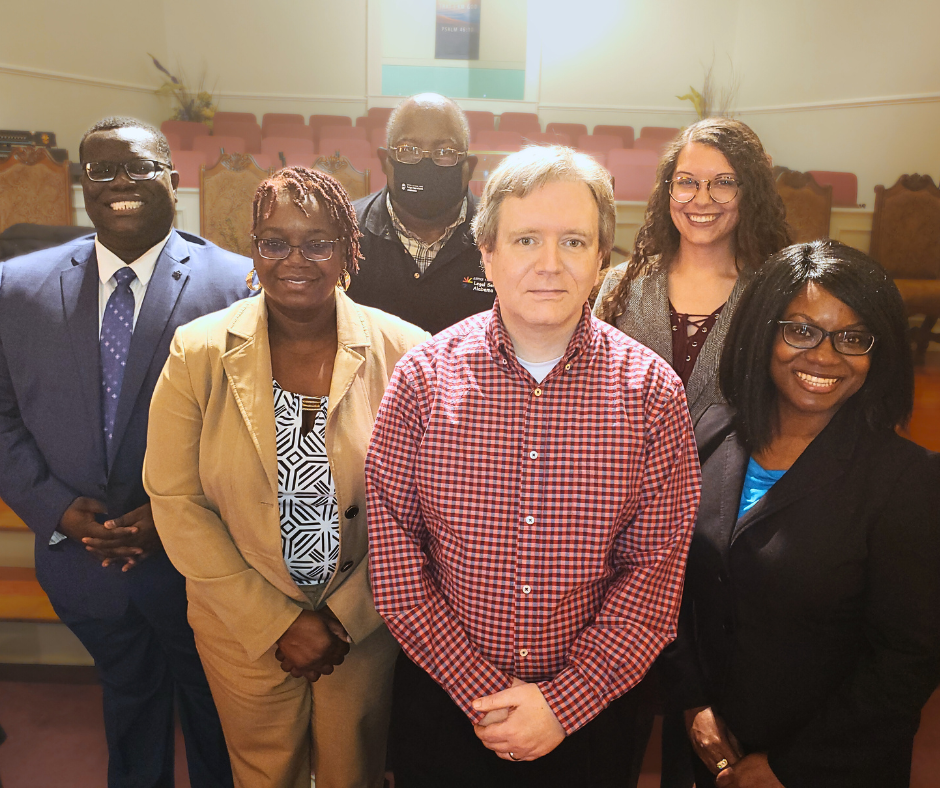HEIRS PROPERTY Resources
Select from the subjects below to access helpful information and resources.
When a person dies without making a Last Will and Testament during life to transfer real property to someone else upon death, or without transferring real property through other legal means, heirs property results. Heirs property is real property that is passed from generation to generation without clear title. Multiple heirs have fractional interest in the property. However, no sole heir owns the property outright.
Heirs property refers to a home or land that passes from generation to generation without a legally designated owner resulting in ownership divided among all living descendants in a family. This unstable form of ownership limits a family’s ability to build generational wealth and hampers the efforts of nonprofits and cities to revitalize neighborhoods.
However, we recommend you see an attorney to ensure your Last Will & Testament is properly drafted and executed.
Alabama has an “elective share” law. If you omit your spouse from your will, your spouse may have the right to take the lesser of: (1) all of the estate of the deceased reduced by the value of the surviving spouse’s separate estate; or (2) one-third of the estate of the deceased.
Some of the grounds include, undue influence, lack of testamentary capacity, underage, and fraud.

Sometimes it is called Heir property, Heirs’ property, Family Land, Grandpa’s Land, or Tangled Title.
It prevents banks from making loans and insurance companies from issuing policies. It causes blight which affects neighborhoods. It reduces housing values and the area’s tax base.
Property can still be heirs property even if a person lives on heirs property, receives a tax bill, and believes the family home is theirs. Relatives living in a different state, unaware of the property, can still be co-owners.
This restricts what heirs can do with the land. Unencumbered title is necessary to protect property. Someone who owns interest in the property can have individual heirs’ interest in the property sold by forcing a sale
Paying current or back taxes does not increase your legal ownership of any real property, including heirs property.
Living in a house does not mean your legal ownership in the property increases.
One heir cannot keep another heir from enjoyment of the property. All heirs have equal, legal right to use and possess the property.
All real property, if there is not a last will and testament, is passed down to all descendants of the person on the last recorded deed.
All heirs, no matter what percentage of their interest, are legal co-tenants with equal rights and say in the management and responsibility of the heirs property.
An heir can sell their interest in heirs property.
When you leave property to multiple beneficiaries in your will you have created heirs property. For example: leaving your house to all of your children in your will as co-tenants makes them the owners of heirs property.
If one of your children has pre-deceased you, their children will inherit the deceased child’s portion.
The named executor or anyone else in possession of an original last will & testament is required to submit it for probate or, if they don’t want to start the probate court process, file it with the county.
A surviving spouse can inherit through a last will & testament or if there is none, under Alabama intestacy laws. If there is no will and the deceased person also had children, the spouse and the children can inherit.
attorneys, certified public accountants, non-profits, government employees, heir locator companies, bankers, elected officials, and genealogists.
We lead presentations at libraries, county extension offices, churches, schools, community centers, online, and more!
We also staff tables at resource fairs and other events throughout Alabama.
If you are a service provider and would like us to speak to your team about what Legal Services Alabama does to help combat the heirs property epidemic, please contact us.
For more information, contact Heirs Property Staff Attorney, Joycelyn Ward at jward@alsp.org

Phone lines are open 8:30am-4:30pm, Monday-Friday

